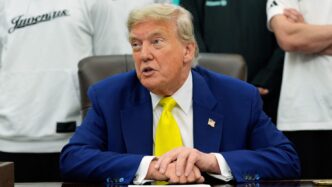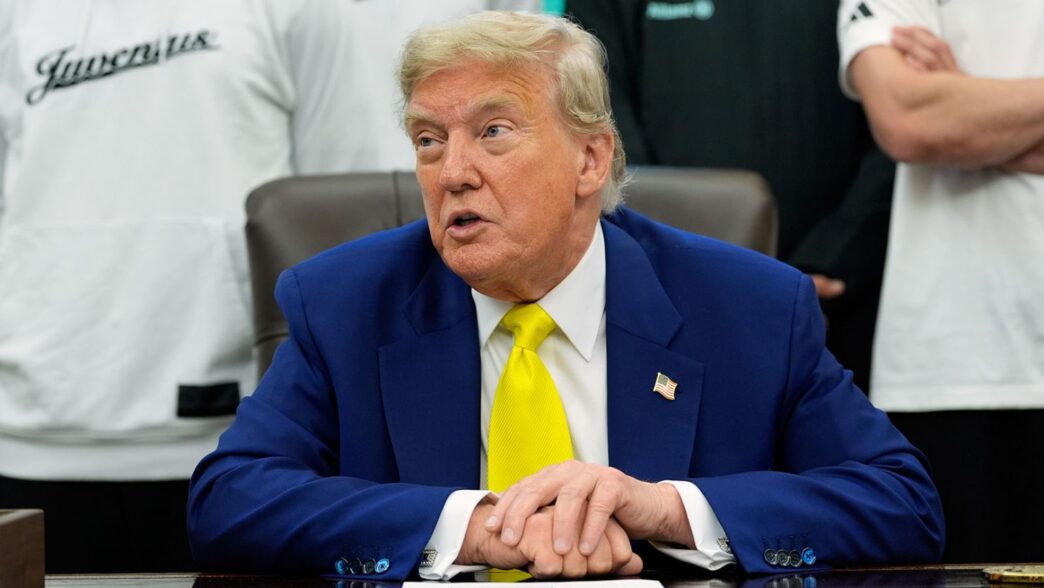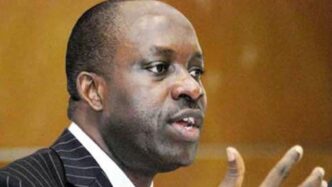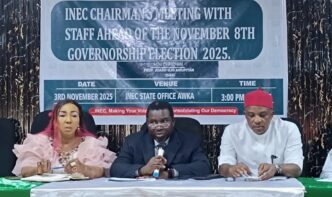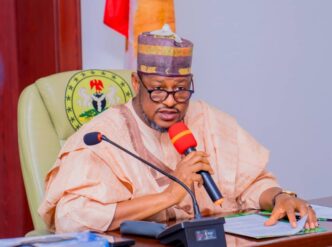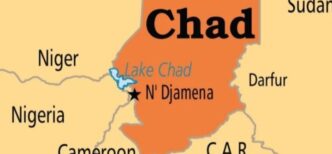Trump’s global tariff shock: sweeping import duties kick in amid uncertainty and economic warnings
The Centre for the Promotion of Private Enterprise (CPPE) has decried the potential impact of the recent invasion threat made by U.S. President Donald Trump on the Nigerian economy, stating that it could hamper Nigeria’s investment drive, among other effects.
Muda Yusuf, chief executive officer, CPPE, in a statement issued to journalists on Monday said that the threat of military action by a global superpower has inflicted significant reputational damage on Nigeria’s image as a safe and viable investment destination.
Trump had, on Friday designated Nigeria as a ‘country of particular concern’, following it up with threat to cut off all US aids to the nation and invade it to wipe out Islamic terrorist allegedly committing a genocide against Christians.
The threat, issued through the president’s official X handle, came as Trump ordered the Pentagon to prepare for a possible action as a lethal response to the alleged killings.
Read also: Trump threatens to launch military attacks in Nigeria over Christian killings
However, Yusuf noted that Nigeria’s security challenges are complex, multifaceted, asymmetrical, and do not constitute a conventional war scenario but rather involve overlapping issues such as insurgency and terrorism, farmer–herder clashes, banditry and kidnapping among others.
He also explained that the victims of these conflicts cut across all religious and ethnic lines, underscoring that the crises are not state-engineered but socio-economic and governance-driven.
He said, “The Nigerian government has consistently prioritised security with defense and security allocations constituting the highest share of recent national budgets.
“Any suggestion of government complicity in these atrocities is grossly misleading and unfair to the present administration. A nuanced understanding of the country’s complex security landscape is essential before any external actor contemplates military intervention.
“Even the mere threat of military action by a global superpower has inflicted significant reputational damage on Nigeria’s image as a safe and viable investment destination.
“Such rhetoric can trigger declines in foreign direct investment (FDI) inflows, capital flight from portfolio and equity investors a decline in venture capital and startup funding and heightened country risk ratings and investor anxiety.”
He further explained that an escalation in perceived geopolitical risk could tighten financial conditions and distort macroeconomic indicators. This for him may lead to Nigeria experiencing rising interest rates, weakened currency and higher inflationary pressures.
He feared that uncertainty and fear would lead investors to adopt a wait-and-see posture, delaying or cancelling major projects. He also said that private equity and venture funds may diversify away from Nigeria toward peer economies in Africa or Asia with lower perceived political risk.
To mitigate these economic and perceptional risks, Yusuf said Nigeria must adopt a strategic and proactive diplomatic response, such as high-level diplomatic engagement.
He called for immediate bilateral discussions with the U.S. government to clarify facts and de-escalate rhetoric, deepen cooperation with U.S. and regional partners on intelligence, counterterrorism, and peacebuilding.
Read also: CPPE urges sustained protectionist policies to boost local industries
He also noted that there is need for a coordinated public messaging to reassure domestic and international investors of Nigeria’s stability.
“The U.S. President’s threat of military intervention in Nigeria is unwarranted, counterproductive, and economically destabilising. It is a disproportionate response that fails to reflect the complexity of Nigeria’s internal security dynamics.
“Such statements send unsettling signals to investors, heighten risk perception, and undermine confidence in Nigeria’s economy. While Nigeria must continue to strengthen internal security architecture and governance, any external engagement should be cooperative — not coercive.
“Unilateral military action would destabilise Nigeria’s economy, threaten regional stability, and aggravate humanitarian conditions. The constructive path forward lies in diplomacy, partnership, and shared commitment to peace, development, and mutual respect for sovereignty,” he added.


